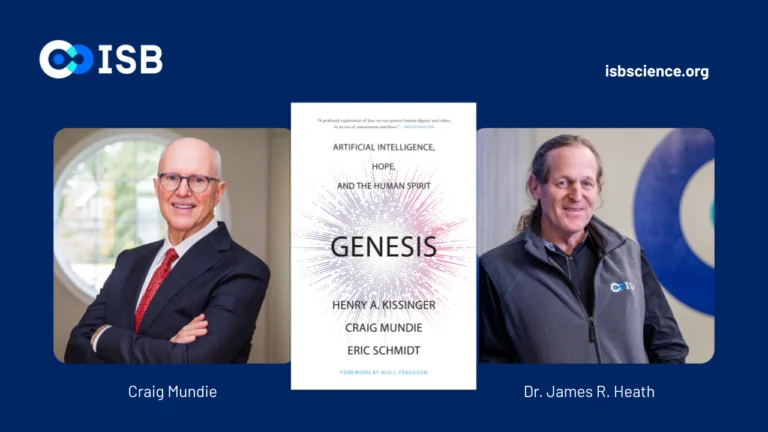Coaching for Cognition in Alzheimer’s (COCOA) Clinical Trial Nearly Complete
The multi-year Coaching for Cognition in Alzheimer’s (COCOA) clinical trial is nearly complete. The trial examined diet, exercise and cognitive training as possible non-pharmacological interventions to Alzheimer’s, with some trial members receiving telephonic coaching centered on stress, diet and exercise, as well as brain training focusing on brain speed and attention.
The multi-year, cross-institutional Coaching for Cognition in Alzheimer’s (COCOA) clinical trial is nearly complete.
“The hypothesis of the trial was to take people with early Alzheimer’s and treat them with mostly non-pharmacological interventions to improve Alzheimer’s compared to controls,” said ISB Senior Research Scientist Dr. Jared Roach, who has overseen COCOA, a randomized controlled trial that followed 53 participants, each over 24 months.
Roach discussed the trial while presenting at an ISB Research Roundtable virtual event. You can watch his presentation here, or hit play on the video above.
The COCOA trial examined diet, exercise and cognitive training as possible non-pharmacological interventions to Alzheimer’s, with some trial members receiving telephonic coaching centered on stress, diet and exercise, as well as brain training focusing on brain speed and attention. Formal results are not yet available, as the trial is not yet complete.
ISB, the Shankle Clinic, the Hoag Neurosciences Institute, and other collaborators conducted the study, and funding came from Providence.
ISB and Clinical Trials
Why does ISB conduct clinical trials?
“Yes, we want to test the hypothesis, but we want to do systems biology, too,” Roach said. “We want to generate a lot of data to learn a tremendous amount about the disease, to modify the intervention and improve it in the next version of the clinical trial so we can do a series of clinical trials over time.”
One of the defining aspects of the COCOA trial was the sheer amount of data collected on each patient – about 2,500 variables were examined over six time points.
Roach said another reason for this trial was to give a gift to the research community.
“The more trials we do on the more diseases, the more we can do integrative analysis across all of these clinical trials to learn new things we couldn’t even imagine asking questions about before we started,” he said. “We take a global vision of human health as we’re doing these clinical trials and fit them together.”
Research Roundtable
ISB is hosting a series of Research Roundtable conversations throughout 2021 that will feature our leading scientists discussing their latest research. These events are designed for the novice scientist and the expert alike, and are open to anyone interested in the topics. Featured scientists will also answer your questions.
Next up in our series is ISB Associate Professor Dr. Naeha Subramanian, who will discuss the latest in ISB’s Lyme Disease research on July 13 (sign up here). On September 21, Dr. Andrew Magis will discuss identifying markers of cancer years before diagnosis (sign up here).
Past events have featured ISB Co-founder Dr. Lee Hood and microbiome specialist and ISB Assistant Professor Dr. Sean Gibbons. You can read about their talks and watch their presentations here and here, respectively.


